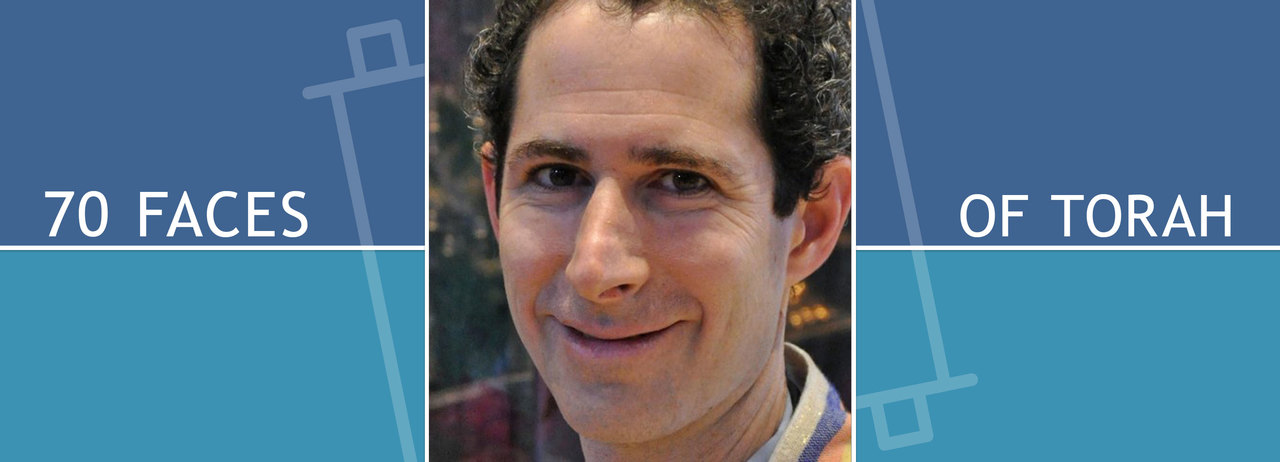Exodus A Festival for All of Us: MLK, Inauguration, and the Unfinished Work of Redemption

Parshat Bo (Exodus 10:1–13:16)
We celebrate this week the birthday and the life of Dr. Martin Luther King Jr., who often retold the story of the liberation from Egypt as a model for modern-day redemption and transformation. Simultaneously, as we read this week about the dramatic and violent events that brought about political and societal change for our ancestors in Egypt, we are preparing for a transfer of power in our country, feeling a mixture of great hope, real worries, and fear of violence and turmoil.
Our Torah portion begins after the plague of hail, with Moses coming to Pharaoh and demanding once again on God’s behalf: “Let My people go and worship Me.” Moses warns Pharaoh that if he doesn’t relent, locusts will suddenly appear and cover up the land, devouring the remnants of the crops, the later-blooming wheat and emmer which were spared by the hail. Pharaoh’s servants, his advisors, openly question him for the first time, urging him to let the Israelites go. These yes-men finally point out the reality that Pharaoh denies but which is obvious to the reader—that he has lost his grip on power; that the more he clings to it, the more destruction he will cause.
Pharaoh, who has only vacillated when in the throes of the previous plagues, now takes the usual pre-plague warning seriously for the first time. He calls Aaron and Moses back to negotiate, offering them at least part of what they are asking for. “Go worship your God!” And almost as an afterthought, “Who is going?”
Moses answers, “With our young and our old we will go, with our sons and daughters, our sheep and our cattle, we go, for it is for us a festival for our God.” Pharaoh replies sarcastically, or perhaps prophetically: “May God be with you if I send you out with your children!” And then, “No way!”—the Hebrew shows his ambivalence with the simplest oxymoron “lo chein,” which can be translated in the plain meaning of the text as: “Not so!” or, midrashicly, as: “No! Yes!”
Why is this the only time that Pharaoh hesitates and lets his resolve waver before a plague strikes? Is it the prospect of the few remaining crops being slated for destruction? Or is it due to the beginning of Pharaoh’s isolation from even his coterie of servants and advisors, when it dawns on even a king and dictator that he can’t function without his base of power, without his willing followers?
As we celebrate Martin Luther King Day this week and anticipate our country’s quadrennial presidential inauguration, I want to focus on Moses’ refusal of Pharaoh’s offer of a partial liberation, of a short-lived respite for only a few.
Redemptions in our lifetime are by nature incomplete and unfinished. We recall the Exodus in our prayers each day, reread the text each winter, and retell the story at our Passover Seders, all in order to remind ourselves that even though we’ve been redeemed, there is still much work to be done. In the same way, we mark Martin Luther King Day each year, taking stock of our society and how much or how little we have changed. We imagine how Dr. King might be pleased to see some of his dreams realized, and how disappointed and even horrified he might be at the ways in which they remain unfulfilled: black men asphyxiated by police, Confederate flags unfurled in the Capitol, and the myriad everyday ways in which people are still treated differently because of their skin-tone.
May our retelling of the Exodus, our commemorating MLK, and our celebrating an inauguration this week all inspire us to do our part to continue the unfinished work of redemption, not to be satisfied with half-measures. And may Moses’ response to Pharaoh remind us that redemption isn’t redemption if it isn’t inclusive, if the festival doesn’t encompass people of all ages and genders, regardless of inner qualities and outward appearance, and incorporate even our flocks, who represent the rest of creation with whom we share our beautiful, fragile, and imperfect planet.
Ken Richmond has been the Cantor of Temple Israel of Natick since 2006, and has also served since then as adjunct faculty in Hebrew College’s cantorial program. He is studying at Hebrew College’s Rabbinical School, with an expected ordination date of spring 2021.

